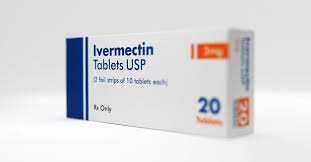By Medeea Greere of AMG-NEWS on January 11, 2025
In an era where conventional cancer treatments dominate headlines and hospital rooms, a revolutionary group of doctors has emerged, challenging the status quo. These trailblazers have compiled a powerful list of 18 alternative cancer therapies that are not only effective but also scientifically backed. What makes this breakthrough even more remarkable? Many of these interventions are either highly affordable or completely free. It’s time to delve into these life-changing therapies that could transform how we approach cancer treatment, one step at a time.
Fighting Cancer with Science and Unconventional Wisdom
We’ve all heard the heart-wrenching stories. A loved one diagnosed with cancer, spiraling into a vortex of chemotherapy, radiation, and, too often, despair. But what if there were alternative solutions out there—proven, science-backed interventions that aren’t part of the mainstream narrative? What if you could fight cancer with tools that are both effective and accessible? Prepare to explore 18 alternative cancer treatments that are shaking the foundations of modern medicine. These aren’t just theories—they are potent, research-backed strategies that could very well save lives.
1. Glucose Management & the Ketogenic Diet: Starving Cancer Cells
Cancer cells are greedy. They thrive on glucose, using it as their primary fuel source to multiply uncontrollably. The ketogenic diet—a high-fat, low-carbohydrate diet—is designed to cut off this supply by forcing the body to enter a state of ketosis, where it burns fat instead of glucose. This approach literally starves cancer cells of their lifeblood.
The science is solid. Research has shown that many cancer cells cannot use fat for energy, which gives the ketogenic diet a unique edge in cancer therapy. And while this diet is often dismissed in mainstream medicine, the results speak for themselves. Patients who embrace this metabolic shift have reported slower tumor growth and, in some cases, complete remission.
2. Exercise: The Natural Immune Booster
Exercise is more than just a tool for weight loss or cardiovascular health—it’s a potent weapon in the fight against cancer. Regular physical activity doesn’t just make you feel good; it supercharges the immune system, allowing your body to detect and destroy cancer cells more effectively.
Studies have consistently shown that exercise reduces inflammation, which is crucial in preventing cancer growth. Furthermore, exercise helps combat fatigue, a common side effect of both cancer and conventional treatments like chemotherapy. Imagine feeling more energized while actively fighting cancer cells—exercise makes that possible.
3. Stress Reduction, Sleep, and Sunshine: A Trio of Cancer Fighters
Stress is a silent killer. Chronic stress weakens the immune system, promotes inflammation, and can even trigger cancer growth. This is why managing stress is not just important—it’s essential in the fight against cancer. Techniques like meditation, deep breathing, and mindfulness can all reduce stress, boosting the body’s natural defenses.
Sleep is another critical factor. During deep sleep, the body repairs itself, strengthens the immune system, and flushes out toxins. Skimping on sleep can undermine even the most aggressive cancer treatments. On the other hand, regular exposure to sunlight helps regulate sleep cycles and, more importantly, boosts the production of vitamin D—a vital nutrient for cancer prevention.
4. Vitamin D3: A Crucial Cancer-Fighting Nutrient
Vitamin D3 is a game-changer. Low levels of this essential vitamin have been directly linked to an increased risk of cancer, especially breast, colon, and prostate cancers. But here’s the good news: supplementing with vitamin D3 has been shown to support the immune system and prevent cancer cell proliferation.
In fact, a 2020 study found that people with higher levels of vitamin D3 were significantly less likely to develop cancer. Given how easy and affordable vitamin D3 supplementation is, this is a no-brainer for anyone looking to reduce their cancer risk or support their treatment regimen.
5. Propranolol: A Surprising Ally in Cancer Treatment
Propranolol, a common beta-blocker used for heart conditions, has shown promise as a cancer treatment. This drug works by reducing the stress hormone norepinephrine, which has been shown to aid in the spread of cancer cells. By blocking this hormone, propranolol effectively starves cancer cells of one of their growth aids.
Though this might seem surprising, several studies have demonstrated propranolol’s ability to slow tumor progression and enhance survival rates in cancer patients. It’s time to reconsider this humble drug as a powerful tool in the anti-cancer arsenal.
6. Melatonin: More Than a Sleep Aid
Melatonin is best known as the hormone that helps regulate sleep, but recent research has uncovered its powerful anti-cancer properties. Melatonin has been shown to enhance the effectiveness of chemotherapy and radiation while also protecting healthy cells from damage. This dual action makes melatonin a valuable tool in integrative cancer therapy.
Furthermore, melatonin boosts the immune system, helping it recognize and destroy cancer cells. If you’re not already taking this natural supplement, it might be time to consider adding it to your cancer-fighting toolkit.
7. Metformin: A Diabetes Drug with Cancer-Fighting Benefits
Metformin, commonly prescribed for type 2 diabetes, has recently gained attention for its potential anti-cancer properties. This drug works by lowering insulin levels, which, in turn, reduces the availability of sugar (glucose) that cancer cells thrive on.
Several studies have shown that metformin can slow the growth of cancer cells, particularly in breast and prostate cancers. The affordability and availability of this drug make it an attractive option for anyone seeking alternative treatments.
8. Curcumin (Nanocurcumin): A Potent Anti-Inflammatory Weapon
Curcumin, the active compound in turmeric, has been used for centuries for its anti-inflammatory properties. But recent studies have shown that curcumin can do more than just reduce inflammation—it can also inhibit cancer cell growth and even trigger cancer cell death.
Nanocurcumin, a more bioavailable form of curcumin, allows for higher absorption rates, making it an even more potent weapon against cancer. Adding curcumin to your diet or supplement regimen could provide powerful support in the fight against cancer.
9. Ivermectin: Beyond the Headlines
Ivermectin has made headlines for its controversial use during the COVID-19 pandemic, but its potential as a cancer treatment is gaining attention. Research suggests that ivermectin interferes with cellular processes essential for cancer cell viability, slowing their growth and making them more susceptible to other treatments.
While ivermectin’s use in cancer therapy is still being explored, early results are promising, and this inexpensive drug may soon become a key player in the fight against cancer.
10. Mebendazole/Fenbendazole/Albendazole: Anti-Parasitic Drugs with Cancer Potential
Mebendazole, fenbendazole, and albendazole are all anti-parasitic drugs that have shown remarkable anti-cancer properties. These drugs work by inhibiting cancer cell division and inducing cancer cell death.
The idea of using anti-parasitic drugs to treat cancer may seem unconventional, but the science behind it is compelling. These drugs disrupt the cellular processes that cancer cells depend on, offering a new avenue for treatment that is both affordable and effective.
11. Green Tea: Nature’s Anti-Cancer Beverage
Green tea has long been celebrated for its numerous health benefits, but its cancer-fighting properties are truly remarkable. The active compound in green tea, epigallocatechin gallate (EGCG), has been shown to inhibit the growth of cancer cells and prevent the formation of new blood vessels that tumors need to grow.
Drinking green tea regularly can provide a natural, accessible way to reduce your risk of cancer and support overall health.
12. Omega-3 Fatty Acids: Essential for Cancer Prevention
Omega-3 fatty acids, found in fish oil and certain plant sources, are essential for reducing inflammation and promoting overall health. But they also play a crucial role in cancer prevention.
Studies have shown that omega-3s can reduce the risk of several types of cancer, including breast, prostate, and colon cancers. Incorporating omega-3-rich foods or supplements into your diet is a simple, effective way to support your body’s defense against cancer.
13. Berberine: A Natural Cancer Fighter
Berberine is a plant-based compound that has been used for centuries in traditional medicine. Recently, it has gained attention for its ability to fight cancer by inhibiting cancer cell growth and triggering cancer cell death.
Berberine also helps regulate blood sugar levels, making it an excellent option for those looking to manage glucose and reduce cancer risk.
14. Atorvastatin or Simvastatin: Cholesterol-Lowering Drugs with Anti-Cancer Properties
Statins, commonly prescribed to lower cholesterol, have been found to have unexpected anti-cancer properties. These drugs can inhibit the growth of cancer cells and prevent the spread of tumors. Atorvastatin and simvastatin, in particular, have shown promise in slowing the progression of certain cancers, including breast and prostate cancers.
15. Sildenafil, Tadalafil, and Vardenafil: Erectile Dysfunction Drugs Turned Cancer Fighters
Sildenafil (Viagra), tadalafil (Cialis), and vardenafil (Levitra) are well-known for treating erectile dysfunction, but recent research has revealed their potential in cancer therapy. These drugs can enhance the effects of chemotherapy and make cancer cells more vulnerable to treatment.
By increasing blood flow to tumors, these drugs can help deliver chemotherapy more effectively, making them a surprising but powerful addition to cancer treatment protocols.
16. Disulfiram: A Former Alcoholism Drug with New Hope for Cancer
Disulfiram, a drug used to treat alcoholism, has shown promise in cancer treatment by inhibiting cancer cell growth and promoting cancer cell death. This drug works by targeting specific pathways that cancer cells use to survive, making it an exciting option for those looking for alternative cancer therapies.
17. Ashwagandha: An Ancient Herb with Modern Cancer Benefits
Ashwagandha, a powerful adaptogenic herb, has been used in traditional medicine for centuries to reduce stress and promote overall health. Recent studies have revealed its potential to fight cancer by reducing inflammation, boosting the immune system, and inhibiting cancer cell growth.
Incorporating ashwagandha into your daily routine can provide both mental and physical benefits, making it a valuable addition to any cancer-fighting regimen.
18. Itraconazole: An Antifungal with Cancer-Fighting Potential
Itraconazole, commonly used as an antifungal medication, has recently been discovered to have anti-cancer properties. This drug works by blocking pathways that cancer cells use to grow and spread, making it a promising new option in the fight against cancer.
Though itraconazole’s use in cancer therapy is still being studied, the early results are encouraging, and this inexpensive drug may soon become a key player in alternative cancer treatments.
A New Hope for Cancer Treatment
The 18 alternative cancer therapies highlighted here offer a glimmer of hope in a world dominated by conventional treatments that often come with devastating side effects. These scientifically backed interventions are not only powerful but also accessible and, in many cases, affordable. By exploring these options, patients can take a proactive stance in their cancer treatment and empower themselves with tools that work with the body’s natural defenses.
It’s time to challenge the status quo, to fight back against cancer with a full arsenal of scientifically validated therapies that offer real, tangible results. If you or a loved one are battling cancer, these alternatives may be the key to a brighter, healthier future.











